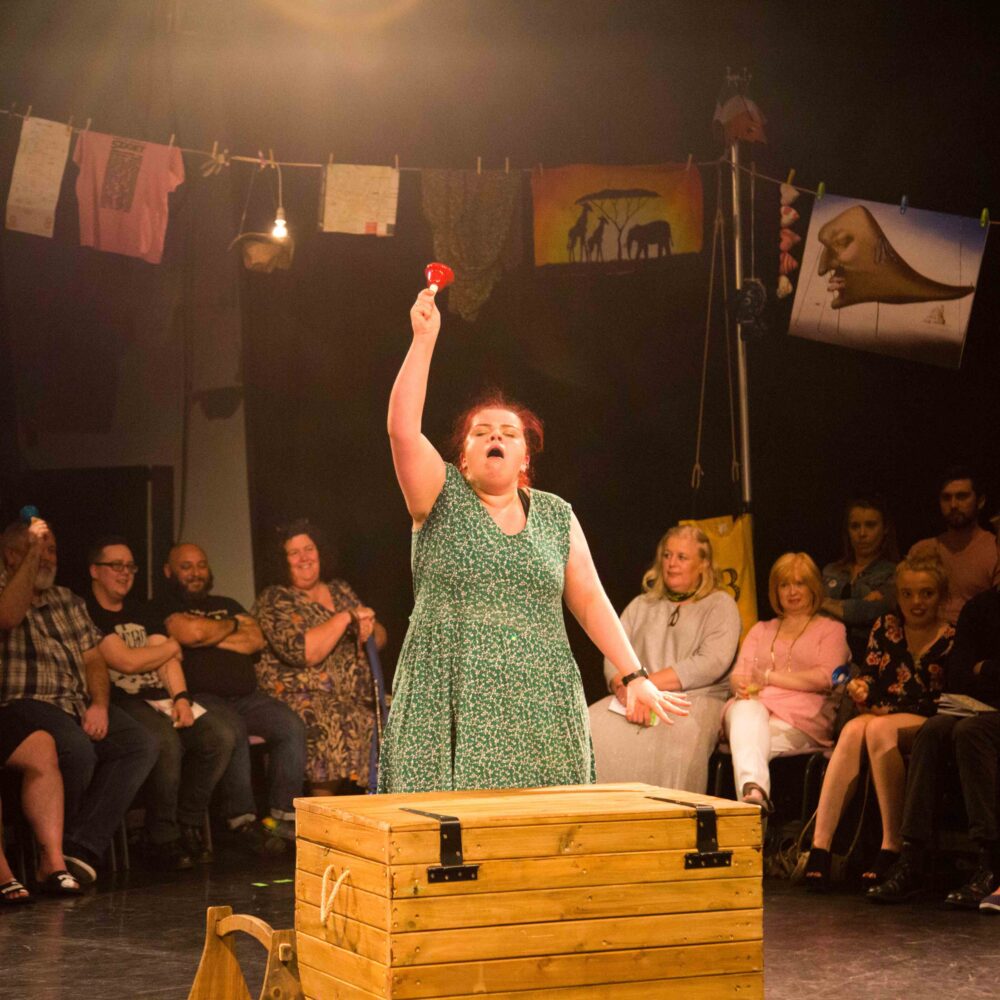



As part of our tour of Declaration we’ve invited audience members we’ve met along the way to share their responses as part of a series of guest blogs.
Our third guest writer is Gill Powell, who has previously worked as a Teacher for 35 years as well as an Early Years Specialist and Assistant Head. Gill shares her experiences of working with parents to support children with ADHD in a time before diagnosis and how better training would help support educators on the front line.
“Having taught in primary schools for over 30 years, I was curious to see how ADHD could be presented in a show as a piece of entertainment.
However, Sarah is so funny and bubbly, with a slight air of unpredictability, that I was hooked from the outset. Using props, music, movement, video clips and a little audience participation, she managed to give the audience a sense of how ADHD had affected her and the people who surrounded her as a child. Interestingly, she also gave an indication of how it continues to impact on the people who are close to her now she is an adult.
It was fascinating to hear from Sarah first hand, as an articulate, creative adult, how she experiences her condition. Describing her reactions to visual and auditory distractions, frustrations and feelings of stress in certain situations, I was immediately picturing so many different children I had known over the years!
If I could have had this communicated to me twenty or thirty years ago I could have applied a different level of empathy or understood more clearly how to have minimised those distractions and frustrations.
Historically, children were less likely to be diagnosed and receive any kind of intervention in the first seven years of schooling, and many didn’t access any support until secondary school.


Most teachers I knew, myself included, relied on researching books and articles, desperately looking for any descriptions which sounded like the behaviour a particular child was displaying. Ultimately, we would be relying on instinct together with trial and error, in order to help children to access education in their own way.
When I was a teacher of Early Years I was often the first point of contact for those parents who needed support in coping with a child who didn’t seem to react to everyday situations in a way that they could understand. It was lovely seeing video clips of Sarah’s mother. What a star!
I’ve spent many hours trying to reassure parents who felt upset, isolated and often angry. They knew that their child was not reacting or behaving in the same way that their other children did in similar circumstances or they could see a contrast between their own child and their friends children.
Occasionally they were in denial, they didn’t want to admit that they and their child were struggling. “No, I don’t know what you mean. They’re fine at home”… would be a common response when I would gently approach discussing some observations of their child’s behaviour and inviting them to share their observations.
Alternatively, or after the barriers have been broken down they would sometimes be upset, feel guilt-ridden and admit to desperately needing some help or support. Other parents at the school who were waiting in the playground or in the classroom and observing a particular child’s unpredictable behaviour would often assume that this was attributed to poor parenting. Understandably, this would only reinforced feelings of failure in that child’s parents, alternatively they would sometimes become fiercely defensive.


Presenting this performance in a wide range of settings (teacher training sessions, TA training groups, parent/teacher meetings, youth events, libraries etc;) would be invaluable. There are so many people, other than professionals, who would benefit from a wider understanding of children’s differences.
Of course, one of the main benefits of anyone, young or old experiencing this show would be those people who listen to Sarah and think ‘Wow, that’s me! That’s how it affects me!’
The power of finding someone to identify with – to recognise an aspect of a condition you have been struggling with throughout your life and know that you’re not alone. Magic!”
Gill Powell